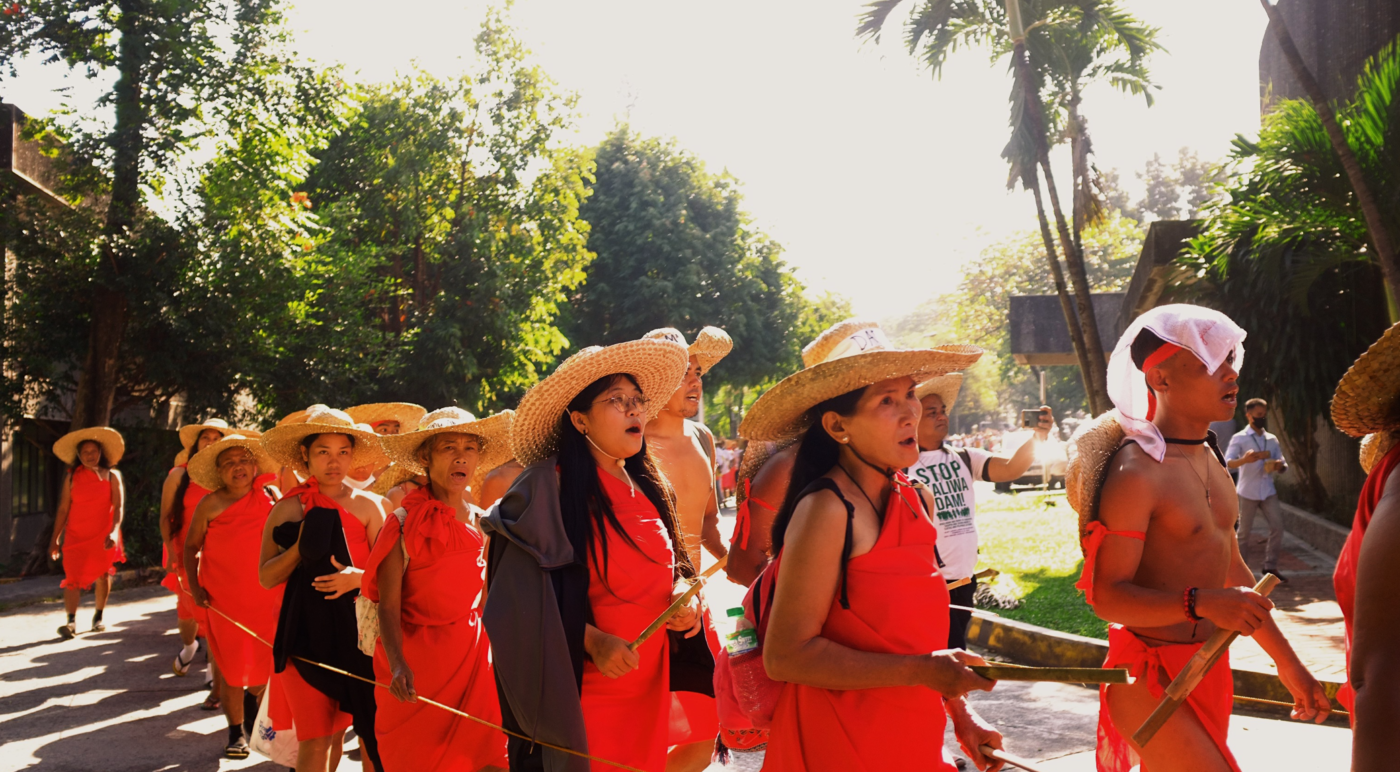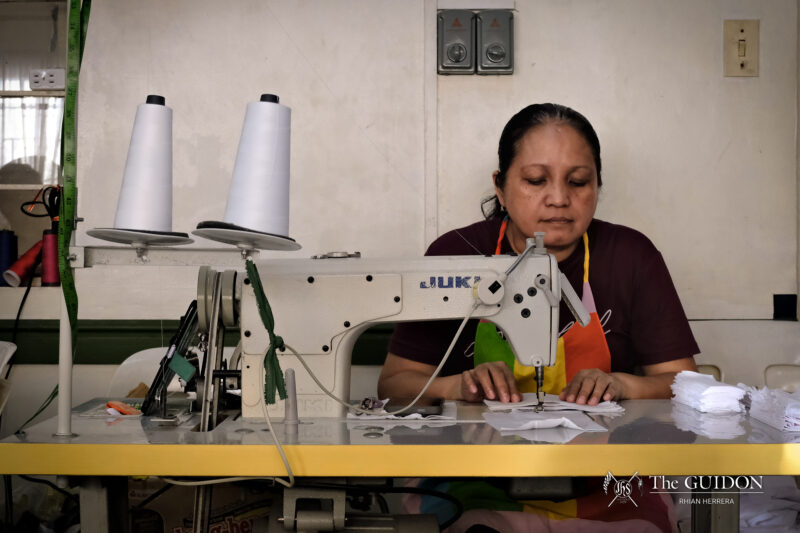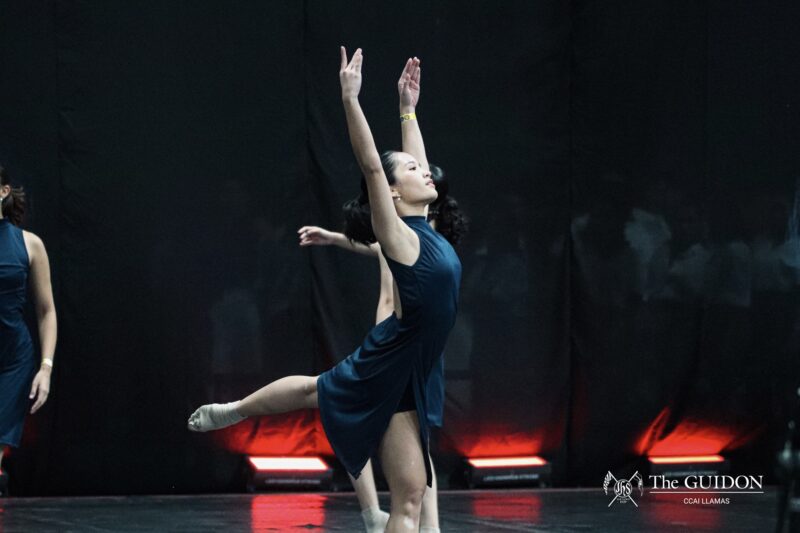Despite government inaction, the Dumagat-Remontado indigenous peoples continue their fight against the construction of the Kaliwa Dam, empowered to stand with their cause until the very end.
ONE YEAR ago, 300 Dumagat-Remontado indigenous peoples alongside farmer members of Pambansang Kilusan ng mga Samahang Magsasaka (PAKISAMA) and other environmentalist groups marched courageously for nine days from February 15 to 23, 2023.
From the provinces of Quezon and Rizal, the marchers braved heat, hunger, and fatigue, calling for the government to halt the construction of the Kaliwa Dam. Aiming to address water-related issues in the metro, the infrastructure project not only threatens major environmental degradation, but curtails the rights of the indigenous peoples to their ancestral domains.
Despite the persistence of the Dumagat-Remontados, the government failed to provide an adequate response to the mounting concerns of the indigenous community. Before they could even reach Malacañang on their ninth day, anti-riot police blocked the path and stopped them from proceeding to the presidential palace.
A year has passed since the Alay Lakad Laban sa Kaliwa Dam. Even without sufficient recourse from the administration, the Dumagat-Remontado indigenous peoples remain steadfast in their struggle against the completion of the dam’s construction.
In the frontlines
Hailing from General Nakar, Boniknik* was one of the marchers who valiantly expressed their solidarity with the cause. As a youth leader in her community, she initially hesitated to join the march, pondering that she might not have the capacity to provide concrete contributions should she participate. She also feared that they would face rejection or inaction from the government.
Despite such concerns, Boniknik ultimately decided to join the members of her community. Honor coursed through her veins as she began feeling how historic their march would be, especially in terms of passionately representing the advocacies of the indigenous peoples.
With this being her first march, her excitement was slightly tinged with fear, as she saw how some social media users brought their advocacy down. Nevertheless, she and her fellow youth drew inspiration from the empowered community leaders that marched with her.
While she felt extremely tired throughout parts of the march, Boniknik was surprised at how welcoming and supportive the people were as they went from town to town. “Isipin mo, kada kanto, kada liko, kada bayan—‘yung pag-welcome sa iyo ng mga tao, bukas sila at suportado sila. Nakakagaan ng loob—may impact pala ‘tong ginagawa namin,” she shares.
(Imagine, each corner, each turn, each town—they welcome you so openly and support your cause. It lifted my spirits and made me realize that we were doing something impactful.)
Despite this overwhelming support, waves of disappointment and frustration overcame Boniknik when the police blocked their path to the palace and when countless government agencies ignored their calls for conversation. “Hindi ko nakitang pinapahalagahan nila ‘yung opinyon ng mga katutubo. […] Doon ko naramdaman—para saan ang gobyerno kung ‘di nila tayo papakinggan?” she says.
(I did not see that they value the opinion of the indigenous peoples. That’s when I felt—what is the government for if they don’t even listen to us?)
Nevertheless, Boniknik considers the march a success due to the massive succor they experienced throughout the march. This event only pushed her to reflect on what other strategies can be more effective in campaigning for their advocacies.
Persisting passion
Succeeding the march, Boniknik and her fellow youth leaders were further emboldened with empowerment. The march made them feel more passionate about catalyzing their fellow youth to act on the issues they face, thus leading to the sprouting of many youth-led initiatives within their communities.
However, tensions remain high within General Nakar, especially as certain community members accepted the disturbance fee of Php 160 million, which was halved with another affected community in Rizal. Leading to deep divisions within the community, this act of acceptance seemed to water down the impact of their nevertheless-powerful nine-day march. “Bakit nila nagawang ibenta ‘yung kapwa nilang katutubo sa ganoong halaga (What made them sell their fellow indigenous peoples at that price)?” she expresses.
The acceptance of the disturbance fee ultimately became another justification for the government to carry on with the project. From what Boniknik hears from her peers in Rizal, the construction of the Kaliwa Dam continues. Most of the residents have also started preparing to leave the site due to the project, and no news has been reported regarding possibilities of its suspension.
While the lack of offered resettlement is in itself an issue, the indigenous peoples assert that they should not even be relocated and displaced in the first place. Their lives, cultures, and traditions are deeply ingrained in their ancestral domains, and uprooting them from their homes is a blatant violation of their rights.
Aside from issues related to the Kaliwa Dam, road widening plans continue to affect the community. While Boniknik believes that the overall objective of the project is positive, she fears the cultural disruptions it may bring to General Nakar.
“Kapag nagkaroon ng kalsada, ang iisipin ng mga kabataang katutubo, magkakaroon dapat sila ng sasakyan. Simpleng gan’on pero magbabago ‘yung kultura—nakakabahala,” she states.
(If roads like this are paved, the indigenous youth will start thinking of buying cars. It may sound simple, but those changes can affect our culture; it’s concerning.)
Collective clamor
Amid incessant modernization at the expense of marginalized groups, Boniknik and countless Dumagat-Remontados remain hopeful that much can still be done to combat the government’s exclusionary policies and projects.
Boniknik highlights the importance of continuing to raise awareness regarding the issue. She also asserts that people should not just know the project’s negative effects, but also be equipped with the mindset that change can still be done. “Mas palakasin dapat ang pangangampanya para marami pang ma-engage. Hindi ako naniniwala na wala nang pag-asa,” she says.
(Campaigning for these advocacies should be amplified so many more can be engaged. I don’t believe that hope is lost.)
Moreover, Boniknik posits that the project will adversely affect not only indigenous communities. The consequences of its environmental degradation will trickle down to the whole nation, alongside the fact that the project is funded by taxes that can be redirected for more inclusive and sustainable endeavors.
Ultimately, the Alay Lakad showcases the empowering potential of collective action in expanding social movements. Boniknik emphasizes that while the Alay Lakad can be considered successful, continuous engagements must be made, alongside rethinking stronger strategies in the future.
“Kung mas malakas pa na boses [ang magmumula] sa [mga] mamamayan, magtatagumpay tayo dahil nasa sa atin ang kapangyarihan,” she asserts.
(If the masses unite for a louder voice, we will emerge victorious because we ultimately hold the power.)
*Editor’s Note: The interviewee’s name has been changed at their request in order to protect their identity and privacy.







